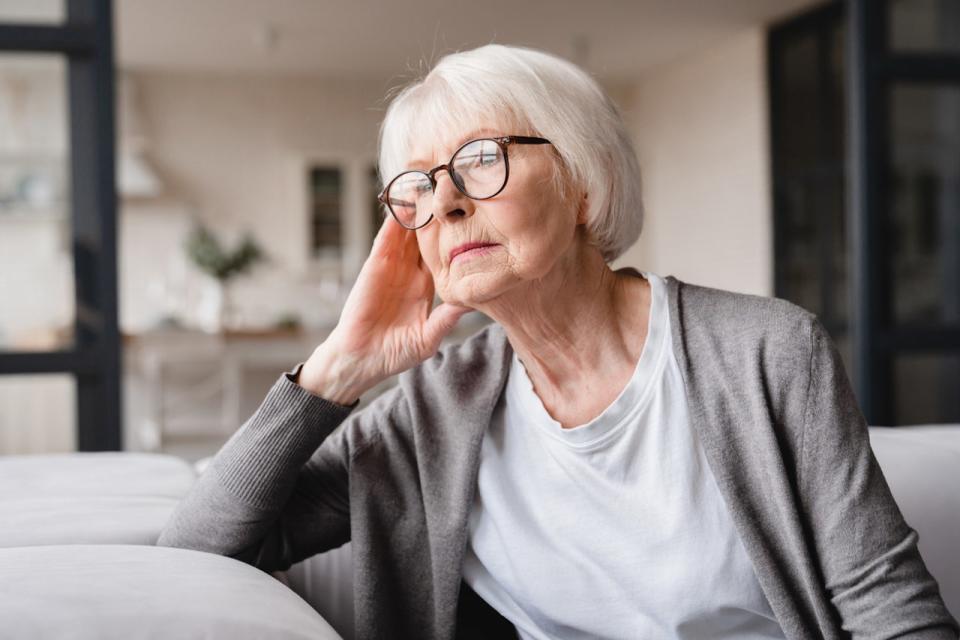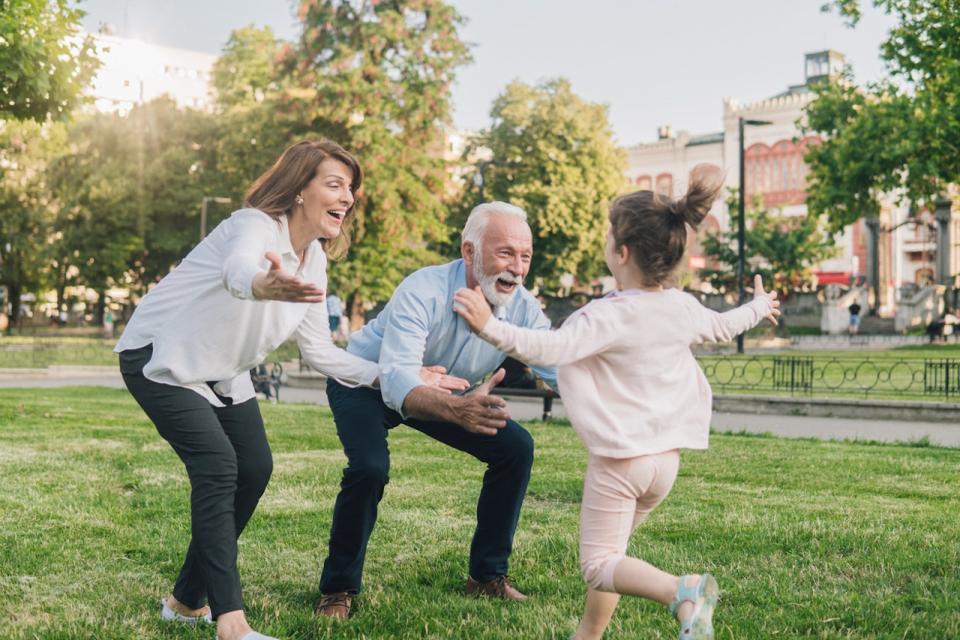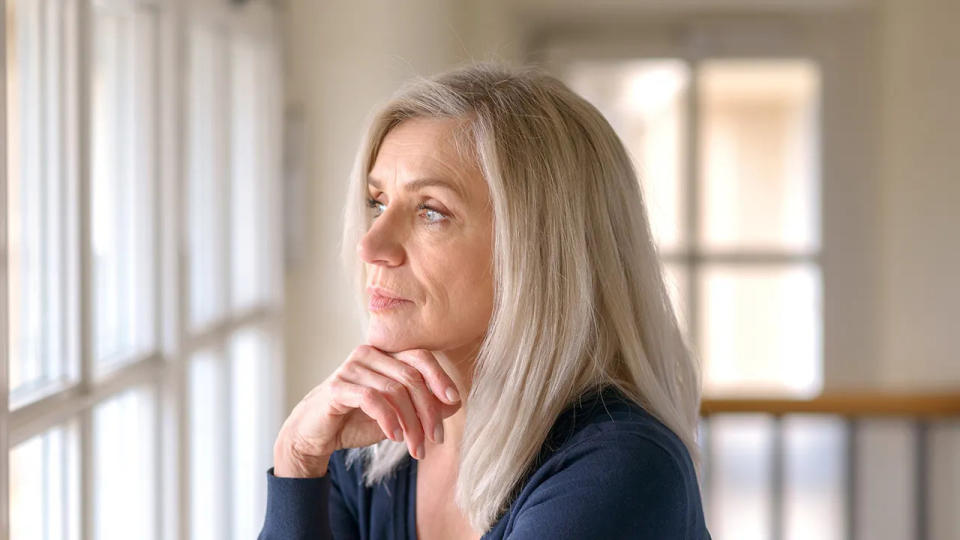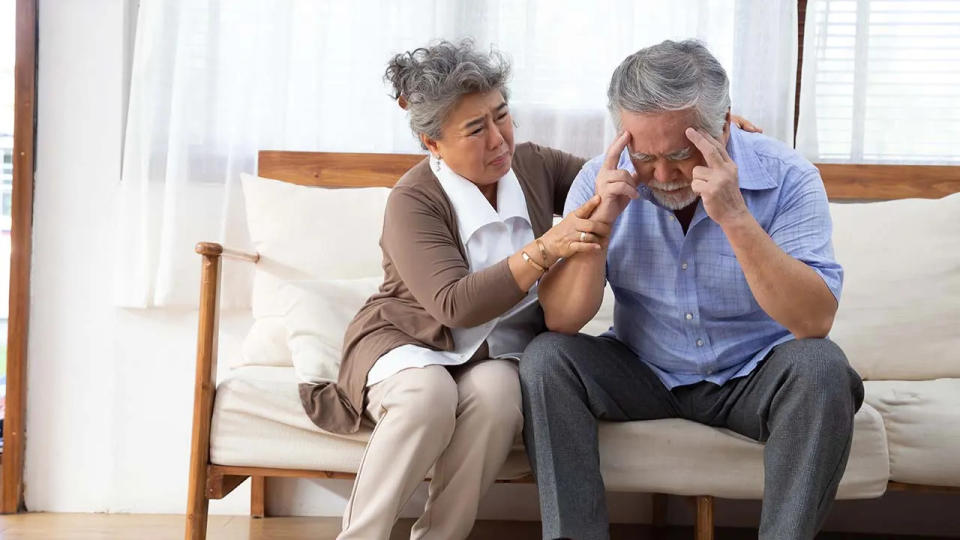Can we reverse Alzheimer’s disease? Experts suggest ‘new paradigm’ for combating dementia

With more people dying from Alzheimer’s disease than ever before, experts are emphasizing the importance of early diagnosis and intervention.
The number of fatalities due to the disease increased by 141% between 2000 and 2021, according to the 2024 Alzheimer's Disease Facts and Figures report.
Also, the number of Americans living with the disease is on the rise as well — up to 6.9 million and counting.
ERECTILE DYSFUNCTION MEDS LIKE VIAGRA LINKED TO REDUCED ALZHEIMER'S RISK, STUDY SUGGESTS
"As older adults — mostly baby boomers born between 1946 and 1964 — are the fastest-growing segment of the population, and this same demographic is at the highest risk for Alzheimer's disease and related dementias, it is not entirely surprising that the number of cases continues to grow," Dr. James Galvin, chief of cognitive neurology and director of the Comprehensive Center for Brain Health at The University of Miami Health System, told Fox News Digital.

Another factor contributing to the uptick of cases is that the disease is getting detected earlier, he noted — "due to scientific advances in knowledge, diagnostic criteria and laboratory tests that enable health care professionals to make diagnoses with greater surety and accuracy."
Early detection and diagnosis allows the family to plan for future care at a time when the patient is able to express their wishes and desires, Galvin noted.
Also, many of the available medications to reduce symptoms are most effective when started early in the course of the disease, he added.
Patients who are diagnosed early will also have a better chance of enrolling in clinical trials for new medications and diagnostics.

"There are newer medications that have the potential for disease modification that are approved or under consideration for approval, so patients have more treatment options," Galvin said.
The current medications largely treat symptoms and slow progression of disease — but several trials are underway to test prevention therapies.
ALZHEIMER'S DISEASE FOUND TO BE TRANSMITTED THROUGH MEDICAL PROCEDURES DECADES AGO, STUDY FINDS
"Specifically, these are monoclonal antibodies against the amyloid beta-protein, the building block of the senile plaques in the Alzheimer’s brain," Galvin said.
"This is particularly exciting, because rather than being reactive after the disease starts, these new programs are proactive and could potentially have a much greater impact on public health."
Dr. Heather Sandison, a leading expert in Alzheimer's and related dementia care who is based in California, said that in some cases, the disease can be slowed or even reversed.
"The ways for individuals to potentially reverse Alzheimer's vary, because the causes of Alzheimer's vary from person to person," Sandison, author of the upcoming book "Reversing Alzheimer’s: The New Toolkit to Improve Cognition and Protect Brain Health," told Fox News Digital.

"Instead of thinking of one way or one of two ways, I propose an entirely new paradigm of thinking about the causes of Alzheimer's disease — identifying them for the individual and creating a targeted, precise approach to treatment."
One person, for example, may have Alzheimer's that is associated with genetic predisposition, high blood sugar and a history of strokes, she noted.
Another individual may have Alzheimer's caused by the inhalation of toxins from environmental pollution, obstructive sleep apnea reducing the oxygen supply, and a history of traumatic brain injuries.
Someone else may have all of these factors.
"We would treat these individuals differently," Sandison said.

Regardless of risk factors, Sandison said the best ways to prevent Alzheimer's are to eat a diet high in vegetables, good fats and proteins, while also getting regular vigorous exercise, quality sleep and daily stress management practices.
"The choices you make each day about what you put in your mouth, how much you move and what time you get to bed have the biggest impact on your long-term brain health," she said.
Like any complex system, the brain and body require a "homeodynamic balance" to function well, according to Sandison.
"Imbalance — too much, too little, in the wrong place, at the wrong time — will create dysfunction and, in the case of the body and brain, disease," she warned.
"The primary causes of imbalance in the brain include toxins, nutrients, stressors, structure, infections and signaling."

With her reversal techniques, Sandison said she sees the best results with patients who are younger than 75, have MoCA (Montreal Cognitive Assessment) scores of 18 and above, and have a supportive network of loved ones around them, "so they can dive fully into the lifestyle changes."
She added, "That being said, we have seen miraculous results with patients in their 80s with single-digit MoCA scores."
DEMENTIA AMONG YOUNGER PEOPLE IS LINKED TO 15 FACTORS, MAJOR STUDY REVEALS
"You don't have to be perfect, but in order to get results, you need to be willing and able to make some changes," Sandison continued.
"If you have that, there is room for hope, no matter how much the disease has progressed."
To her patients, Sandison recommends combining lifestyle recommendations with conventional medicine.
"Diet, lifestyle and functional medicine approaches are best used collaboratively with a primary care provider and neurologist on your team," she said.
"I am hopeful that in the future, we will use the plaque-busting drugs to reduce structural changes in the brain … in combination with the multi-pronged approach to reversing Alzheimer’s."
Sandison coined the "connection over correction" approach as a way of helping caregivers deal with what can often feel like an "overwhelming burden."
BE WELL: TAKE SMART STEPS TO REDUCE THE STRESS OF CAREGIVING
"There are complex emotions — ranging from joy and gratitude for the precious time with a loved one to grief and despair as you lose them slowly," she said.
"The physical, financial and emotional toll adds up."

One way to reduce the burden is to accept that your loved one has changed and stop correcting them, according to Sandison.
"Focus your energy on connecting with them in a way that honors their current capacity," she advised.
CLICK HERE TO SIGN UP FOR OUR HEALTH NEWSLETTER
"If they make a mistake with a word or repeat a question or miss an appointment … make accommodations and focus on the positive aspects of the day, not dwelling on or emphasizing the mistake."

Having compassion for loved ones with dementia and understanding they have a disease they cannot control can help to reframe these frustrating situations, she said.
"We all function best when we are experiencing connections with others and when we can avoid the unnecessary stress of feeling we are wrong or as if we have displeased someone," Sandison added.
The biggest myth surrounding brain health, she said, is that nothing can be done to prevent or reverse dementia or Alzheimer's.
"That just isn't true," she said. "It's almost overwhelming how much you can do to optimize cognitive function at any stage of life."
For more Health articles, visit www.foxnews.com/health.
Original article source: Can we reverse Alzheimer’s disease? Experts suggest ‘new paradigm’ for combating dementia

